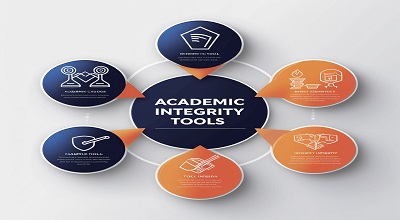Academic Integrity Tools
Academic integrity is a cornerstone of educational institutions, fostering an environment of trust, respect, and responsibility among students, faculty, and staff. This article delves into the essential tools that uphold academic integrity, focusing on the five fundamental values that guide ethical behavior in academia. We will explore each element in detail, provide examples, and address common questions related to academic integrity.
Understanding Academic Integrity
What is Academic Integrity?
Academic integrity refers to the ethical code and moral principles that govern the behavior of individuals within an academic setting. It encompasses honesty, trust, fairness, respect, and responsibility, which are vital for maintaining the credibility of educational institutions and the value of academic work.
Importance of Academic Integrity
Maintaining academic integrity is crucial for several reasons:
- Trust: It builds trust among students, faculty, and the academic community.
- Fairness: It ensures that all students are evaluated based on their own work and abilities.
- Reputation: Institutions with strong academic integrity are respected and valued in the educational landscape.
- Personal Development: Upholding integrity fosters personal growth and ethical decision-making skills.
The Five Elements of Academic Integrity
The five fundamental values of academic integrity, as defined by the International Center for Academic Integrity (ICAI), are:
- Honesty
- Trust
- Fairness
- Respect
- Responsibility
1. Honesty
Honesty is the foundation of academic integrity. It involves presenting one’s own work truthfully and avoiding deceitful practices such as plagiarism or fabrication of data.
Examples of Honesty in Academia
- Citing Sources: Properly attributing ideas and research to their original authors.
- Original Work: Submitting assignments that reflect one’s own understanding and effort.
2. Trust
Trust is built when individuals believe in the integrity of others. In an academic context, trust is essential for collaboration and the sharing of ideas.
Examples of Trust in Academia
- Peer Review: Relying on the honesty of peers during collaborative projects.
- Open Communication: Encouraging students to discuss their challenges without fear of judgment.
3. Fairness
Fairness ensures that all students have equal opportunities to succeed. It involves transparent grading practices and equitable treatment of all individuals.
Examples of Fairness in Academia
- Clear Guidelines: Providing students with clear expectations and criteria for assignments.
- Consistent Grading: Applying the same standards to all students to ensure equitable assessment.
4. Respect
Respect involves valuing the contributions of others and recognizing their rights. It is essential for creating a positive academic environment.
Examples of Respect in Academia
- Acknowledging Contributions: Giving credit to collaborators and acknowledging diverse perspectives.
- Constructive Feedback: Providing feedback that is supportive and aimed at helping others improve.
5. Responsibility
Responsibility entails being accountable for one’s actions and understanding the impact of those actions on the academic community.
Examples of Responsibility in Academia
- Adhering to Policies: Following institutional guidelines regarding academic conduct.
- Reporting Violations: Taking action to report instances of academic dishonesty.
Tools for Promoting Academic Integrity
To support these five elements, various tools and strategies can be implemented within educational institutions. Here are some effective tools:
1. Plagiarism Detection Software
Plagiarism detection tools, such as Turnitin and Grammarly, help educators identify instances of copied work. These tools promote honesty by discouraging students from submitting plagiarized content.
2. Academic Integrity Policies
Institutions should have clear academic integrity policies that outline expectations and consequences for violations. These policies foster a culture of trust and responsibility.
3. Educational Workshops
Workshops on academic integrity can educate students about the importance of honesty, proper citation practices, and the consequences of academic dishonesty.
4. Honor Codes
Implementing an honor code encourages students to commit to ethical behavior. Students sign a pledge to uphold academic integrity, reinforcing their responsibility.
5. Faculty Training
Training faculty on academic integrity issues equips them with the tools to promote ethical behavior and handle violations effectively.
Examples of Academic Integrity in Action
Case Study 1: University of XYZ
At the University of XYZ, the implementation of a comprehensive academic integrity policy has led to a significant decrease in plagiarism cases. The policy includes mandatory workshops for incoming students, educating them on the importance of academic integrity and proper citation practices.
Case Study 2: College of ABC
The College of ABC adopted an honor code that requires students to pledge their commitment to academic integrity. This initiative has fostered a culture of trust, where students feel empowered to report violations without fear of retaliation.
FAQs about Academic Integrity
1. What is academic integrity?
Academic integrity refers to the ethical code that governs the behavior of individuals in an academic setting, emphasizing honesty, trust, fairness, respect, and responsibility.
2. Why is academic integrity important?
It is crucial for maintaining trust, fairness, and the reputation of educational institutions, as well as fostering personal growth and ethical decision-making skills.
3. What are the five elements of academic integrity?
The five elements are honesty, trust, fairness, respect, and responsibility.
4. How can institutions promote academic integrity?
Institutions can promote academic integrity through plagiarism detection software, clear policies, educational workshops, honor codes, and faculty training.
5. What are the consequences of academic dishonesty?
Consequences can include failing grades, academic probation, suspension, or expulsion, depending on the severity of the violation.
6. How can students ensure they maintain academic integrity?
Students can maintain academic integrity by properly citing sources, submitting original work, and adhering to institutional policies.
7. What should I do if I witness academic dishonesty?
If you witness academic dishonesty, it is important to report it to the appropriate authorities within your institution, as this helps uphold the integrity of the academic community.
Conclusion
Academic integrity is essential for fostering a positive and ethical educational environment. By understanding and implementing the five fundamental values—honesty, trust, fairness, respect, and responsibility—educational institutions can cultivate a culture of integrity that benefits all members of the academic community. Through the use of effective tools and strategies, we can ensure that academic integrity remains a priority in our educational practices.
